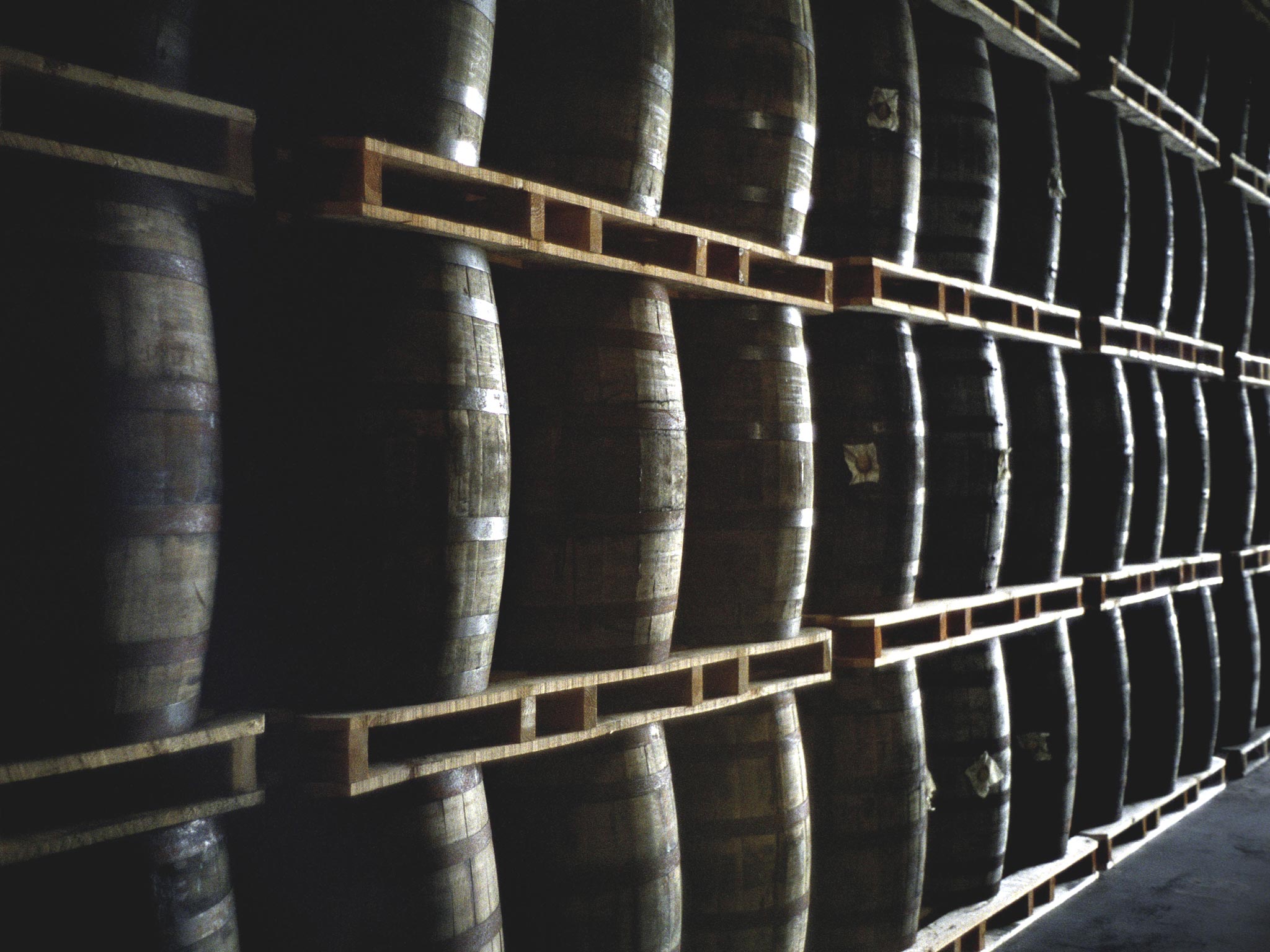Scottish townspeople take on drinks giant over black whisky fungus blighting their homes

In Cognac, the soot-like fungus that has crept up buildings near the town’s famous spirit warehouses for centuries is considered characterful. A thousand miles away amid the whisky sheds of North Ayrshire, the black mould is viewed less charitably.
The Scottish town of Beith has become the latest community to claim that a stubborn fungus colonising houses, cars and other external surfaces is linked to the £4 billion Scotch industry and whisky evaporating from the country’s maturation warehouses.
Such is the level of concern about the mould, known as Baudoinia, that residents have engaged an American lawyer fighting test cases both in Scotland and Kentucky to contemplate a damages claim against Chivas Brothers, the French-owned Scotch producer which operates a vast warehouse site in Beith, some 20 miles west of Glasgow.
Pernod-Ricard, the owner of Chivas Brothers, insists, along with other whisky producers and the industry body, that the fungus is part of a “complex microflora” which occurs throughout Britain and has no proven link to Scotch production.
But campaigners claim the mould, whose characteristic blackening effect can be seen on buildings across Beith including some of Chivas Brothers’ own maturation sheds, is the result of a troublesome mycological marriage that is only possible between Baudoinia spores and ethanol vapours which evaporate from whisky barrels as the spirit matures.
The loss of alcohol from Scotch casks is a natural phenomenon which concentrates the flavour of the whisky and leads to the disappearance of up to 20 per cent of the volume in a barrel of 10-year-old spirit. The airborne alcohol is lyrically known as “the Angels’ Share” but, according to some of Beith’s homeowners, it is the root of a diabolical blight on their properties.
Maurice Mcdonald, who is leading the “Stop Chivas Regal” campaign against plans to expand the number of warehouses in Beith, said: “The Scotch industry has a dirty little secret - when evaporated ethanol escapes into the environment it meets with these spores and produces the fungus equivalent of the Incredible Hulk.
“The whisky fungus is not something you can just wipe off. It embeds itself on walls, cars, phone boxes, everything. It’s very tough to remove.
“And yet the industry simply will not recognise that it is the cause of this issue and wants to expand further in this town, bringing even more of this mould.”
First identified by a Canadian scientist, James Scott, a decade ago, Baudoinia is named after the 19th-century French pharmacist who first noticed the mould blackening the walls around Cognac’s distilleries. Professor Scott established that the growth of the fungus was dramatically accelerated by exposure to ethanol, which also allowed it to flourish in an ultra-hardy form that is resistant to extremes of temperature, including the wild, icy winters of North Ayrshire.
William McMurry, an American lawyer based in Kentucky, who is leading a class action against three bourbon producers in his home state, is now considering adding Beith's homeowners to his list of potential litigants. He alleges that property values in American communities affected by Baudoinia have fallen by up to 30 per cent.
He is already involved in the first “whisky fungus” test case in Scotland being brought against drinks giant Diageo on behalf of homeowners in Bonnybridge, near Falkirk, who allege their properties have been blighted by Baudoinia. Diageo denies the claim and said it will “vigorously contest” the case.
Campaigners say the problem can be easily solved by the installation of technology, known as a thermal oxidiser, which extracts the ethanol from the air in the maturation sheds and costs about £180,000 per warehouse to be installed.
Mr McMurry said: “That sort of money is a drop in the ocean for the whisky industry but it has got its head in the sand. They do not want to be good corporate citizens until people affected by this require them to do so. There is a one-stop solution here which is to install the oxidisers, clean the affected properties and it won’t come back. Instead, we’re having to head to court.”
For Scotland’s whisky producers, the legal cases are simply unfounded and unfair. The industry says it has conducted independent - but unpublished - research, which shows the “environmental blackening” close to its sites is coincidental and not reliant on the Angels’ Share.
In a statement, Chivas Brothers, Scotland’s second largest distiller, which produces brands such as Chivas Regal and Ballantine’s, said: “Chivas Brothers is committed to maintaining the highest possible environmental standards. Naturally occurring microflora is not confined to areas where Scotch whisky is produced and can be found in environments across the UK. We will continue to monitor all research developments in this area.”
Subscribe to Independent Premium to bookmark this article
Want to bookmark your favourite articles and stories to read or reference later? Start your Independent Premium subscription today.

Join our commenting forum
Join thought-provoking conversations, follow other Independent readers and see their replies